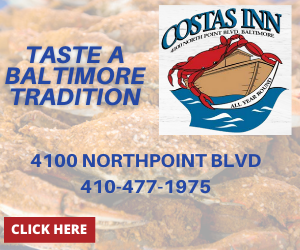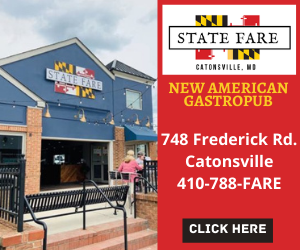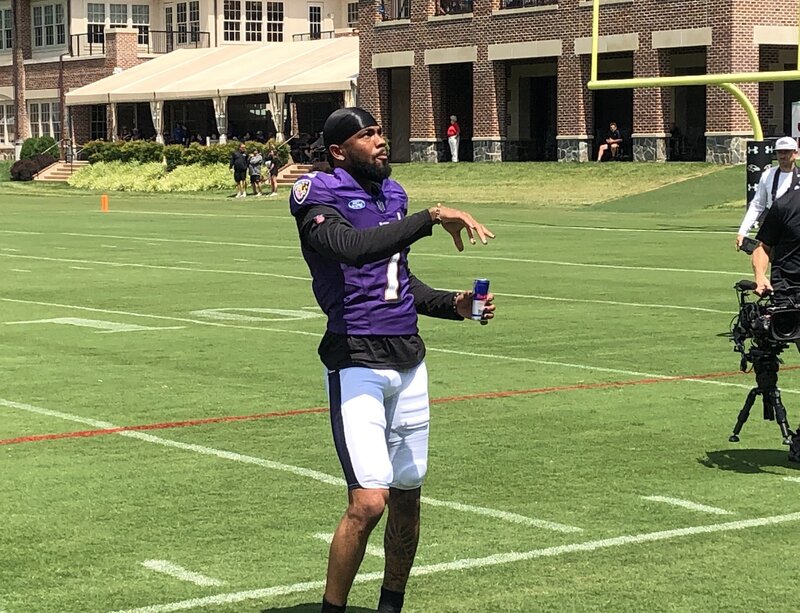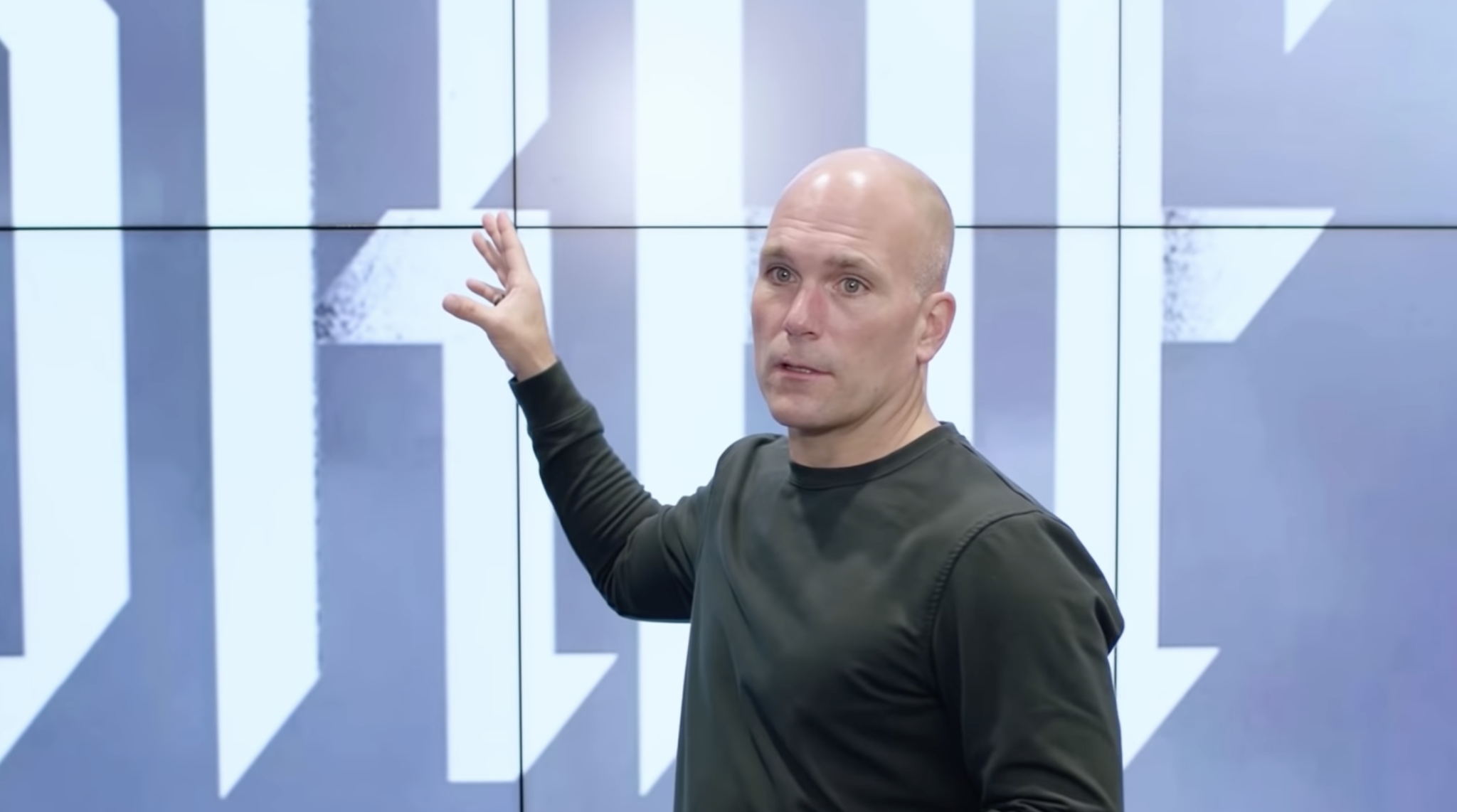antitrust exemption and widely quoted former Expos chairman Claude Brochu, who attempted to move the team to Washington, D.C. in 1998 but couldn’t get Selig to move on the issue.
“I felt the team should have been moved and I told the commissioner that,” Brochu told the newspaper. “I always heard, ‘Well, he’s thinking it over, he’ll review it, he’ll know in two more months or six more months.’ There was really no decision.”
The paper said that the Expos’ next owner, Jeffrey Loria, who finished second to Peter Angelos in an attempt to buy the Orioles at the August 1993 New York auction, also wanted to bring the franchise to Washington, D.C.
The Fainaru Day Two piece in The Washington Post read:
Around baseball, Loria’s brief ownership was already viewed with disdain. He had quickly alienated his Montreal partners, which included some of the most influential businessmen in Canada. His stepson, David Samson, was widely regarded as abrasive and disrespectful.
The former MLB official said DuPuy, Selig’s closest adviser, told him more than once that the chances of Loria getting Washington were nil. According to the former official, DuPuy conveyed the message, “It’ll be over Bud’s dead body before he lets that [expletive] have Washington.”
DuPuy denied speaking pejoratively about Loria, with whom he said he had a good relationship. But he said the “sentiment” was accurate.
The newspaper recalled in painstaking detail how Selig covertly delivered the Boston Red Sox to a group led by his friends John Henry and former Orioles C.E.O. Larry Lucchino, while banishing Loria off to own the Florida Marlins and arranging that the Expos fall into the hands of MLB, where they could extort a city into building an shiny, new edifice and paying them handsomely for the only franchise available to come to City X.
Washington wanted to be that city and the local newspaper with global clout was continuing the heat on Major League Baseball.
On the final day of The Washington Post series in late June 2004, the headline said it all for fans of Washington, D.C. baseball:
“Angelos, Selig Last Men Standing in D.C.’s Way”
Selig told the paper: “Look, if you own a team, there’s a certain understanding, you try not to hurt your existing partners.”
It continued:
The decision will be the culmination of a process shrouded in secrecy and entirely consistent with Selig’s highly personal management of Major League Baseball — a style sanctioned by the sport’s unique antitrust exemption.
And in the end, it may all turn on the relationship between two powerful men.
No one knows if Selig will defy Angelos, who or what might influence him to do so, or how the owner will respond.
At this point Washington had two very attractive offers – one from the city and another to place a new ballpark near the Dulles International Airport in the affluent Northern Virginia suburbs.
The Washington Post continued to examine Selig, who would be the one making the decision:
One Major League Baseball official who has worked closely with Selig described him as “an expert in behavioral modification.”
“Some of his preferred tools are off-the-record character assassination made to the media and other owners, and minimizing [owners’] participation in high-profile committees,” the official said. “Remember that the majority of the owners are egocentric and want to be respected and admired by their peers. Most have paid a significant price to become a member of this exclusive club and hate the thought of being publicly or privately shunned or minimized by other members.”
Selig’s most successful project has been Angelos. “If Peter was backstabbing Bud and screwing the industry, we’d have a team in D.C. right now,” said the official, who requested anonymity because of the sensitivity of the negotiations. In fact, Selig and Angelos are “almost linked at the hip,” the official said.
Meanwhile Angelos always maintained that Selig knew where he stood and that he wouldn’t actively lobby other owners to affect any vote even though his partners knew it would “cause serious economic consequences to the Orioles.”
Angelos told the newspaper: “I think Bud Selig is going to make up his mind on his own. Foremost in his decision will be what he believes is good for baseball. Hopefully, that includes his desire to preserve the stability of the Orioles team. That’s my position.”
Fainaru reported for The Washington Post:
The relationship between Selig and Angelos has shifted 180 degrees since he bought the Orioles for $173 million — at the time the highest price for a sports franchise — at a 1993 bankruptcy auction. It was a decision, he joked, that grew out of “a moment of weakness, or a moment of ego nourishment.”
The following year, Angelos famously opposed the Selig-led labor strategy that led to the cancellation of the World Series. He rejected the use of replacement players in 1995 as “Selig’s delusion.” He called revenue-sharing — a centerpiece of the owners’ economic proposal — “the antithesis of the very essence of this country: competition.”
The acting commissioner, Angelos told a writer at the time, was merely “a handmaiden of the owners.”
Angelos now calls Selig “the best advocate for the game. Yeah, I once had different views. But they were in the beginning, when I was new and green.”
Angelos said his views shifted for various reasons, including a growing disillusionment with a lopsided economic system that he said most rewards his divisional rivals, the New York Yankees and Boston Red Sox.
The other 28 MLB partners, mainly Republicans, loved that Angelos had the ability to help them with some of his Democratic friends in D.C. He brought balance. His siding with the players in 1994 led to his ability to reason with the other side of the table in the 2002 negotiations and his MLB partners were grateful. But just how grateful?
Every MLB owner now had more than $6 million invested in the purchase and debt of the Montreal Expos and Selig had a fiduciary responsibility and a leadership charge to do the right thing for the future of Major League Baseball – not just to pacify one angry partner in Baltimore who didn’t truly have a legal leg to stand on in the debate. There was no written agreement anywhere that stated or implied that Washington, D.C. was the sole territory of Peter Angelos and the Orioles. And several MLB owners expressed concerns about Washington being left without a team and a town full of politicians scorned and the local newspaper clearly exposing their golden ticket of “antitrust exemption” as worthy of reopening in Congress. Baseball already had a lot of explaining to do in regard to steroids on Capitol Hill and the owners didn’t like anything about being in front of politicians having to …
































